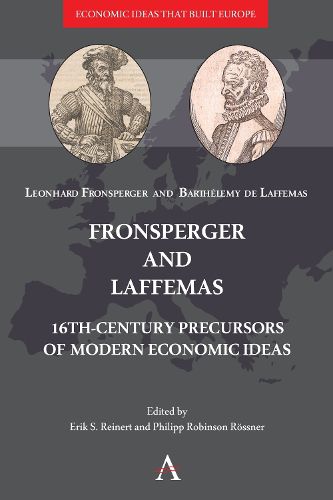Readings Newsletter
Become a Readings Member to make your shopping experience even easier.
Sign in or sign up for free!
You’re not far away from qualifying for FREE standard shipping within Australia
You’ve qualified for FREE standard shipping within Australia
The cart is loading…






This volume introduces two unique and hitherto largely unknown contributions to the making of modern economic knowledge and makes them available internationally for the first time in full English translation. The messages of the books are seemingly contradictory, one focuses on the role of individual interests and the other on the role of government., but together theyform two important pillars for the economics profession: self-interest and industrial policy.
Locatedsomewhat at the cross-roads between medieval Scholasticism and early mercantilism the book presents a basic version of the infant industry argument and European standard model of economic development which evolved into the works of Enlightenment thinkers such as Colbert and Friedrich List and of the nineteenth- and twentieth-century industrial policy in all the countries that followed England's path to industrialization, including the post-WW II Marshall Plan. - Leonhard Fronsperger's On the praise of self-interest (German original: Von dem Lob de Eigen Nutzen, 1564) is the first documented instance of the 'Mandeville paradox', a theorem in modern economics usually associated with much later writings including Bernard de Mandeville's Fable of the Bees (1705/14), and Adam Smith's Wealth of Nations (1776).
$9.00 standard shipping within Australia
FREE standard shipping within Australia for orders over $100.00
Express & International shipping calculated at checkout
This volume introduces two unique and hitherto largely unknown contributions to the making of modern economic knowledge and makes them available internationally for the first time in full English translation. The messages of the books are seemingly contradictory, one focuses on the role of individual interests and the other on the role of government., but together theyform two important pillars for the economics profession: self-interest and industrial policy.
Locatedsomewhat at the cross-roads between medieval Scholasticism and early mercantilism the book presents a basic version of the infant industry argument and European standard model of economic development which evolved into the works of Enlightenment thinkers such as Colbert and Friedrich List and of the nineteenth- and twentieth-century industrial policy in all the countries that followed England's path to industrialization, including the post-WW II Marshall Plan. - Leonhard Fronsperger's On the praise of self-interest (German original: Von dem Lob de Eigen Nutzen, 1564) is the first documented instance of the 'Mandeville paradox', a theorem in modern economics usually associated with much later writings including Bernard de Mandeville's Fable of the Bees (1705/14), and Adam Smith's Wealth of Nations (1776).